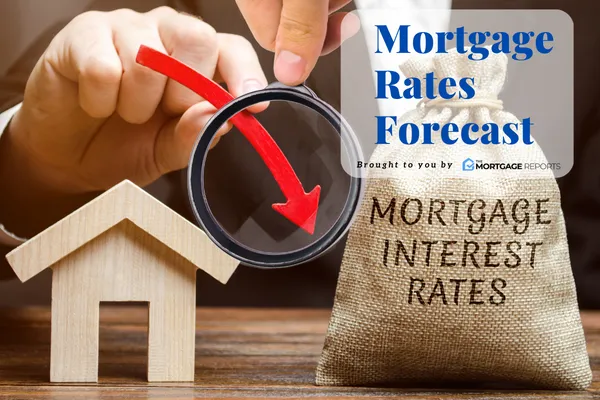
The Adler Team Mortgage Rate Forecast
Mortgage Interest Rate Prediction:
"Will rates go down in January 2023?"
Mortgage rate forecast for the week of January 2 - 6th: 😃
After tumbling for the past six weeks, interest rates resumed their growth from earlier this year.
The average 30-year fixed rate mortgage jumped from 6.27% on Dec. 22 to 6.42% on Dec. 29, according to Freddie Mac.
Although inflation shows signs of cooling and the Fed took a softer policy stance, the central bank is still planning hikes and puts upward pressure on mortgage rates.
Will mortgage rates go down in January? 👊🏠
Mortgage rates fluctuated greatly in 2022. The average 30-year fixed rate went as low as 3.22% on Jan. 6 and reached a high-water mark of 7.08% on Nov. 10, according to Freddie Mac.
The year’s big rate movements can be attributed largely to the Federal Reserve’s aggressive actions to help combat decades-high inflation. However, with inflation starting to cool, the Fed eased its foot off the gas in December and is expected to make smaller rate hikes in 2023.
With the economy likely heading into a recession, it’s possible we’ve already seen the peak of this rate cycle. Of course, interest rates are notoriously volatile and could tick back up on any given week.
Here are 3 expert mortgage rate predictions for January:
1. Rates will moderate
“Mortgage rates will continue to face upward pressure until inflation convincingly cools. The Federal Reserve has made it clear that its stance will remain hawkish until inflation begins to approach its desired target of 2%. However, recession fears and any new data that suggests inflation is cooling may put some downward pressure on mortgage rates. The result of these push-and-pull factors may be a moderation in mortgage rates.””
By: Odeta Kushi, deputy chief economist at First American
2. Rates will drop
“Mortgage rates will probably be more or less flat for most of January, moving up or down within a fairly tight band — perhaps between 6.25% and 6.50% for a 30-year fixed-rate loan. Actions and comments by the Federal Reserve have generally been the cause of more rapid spikes and declines in mortgage rates recently, and the Fed isn’t scheduled to meet again until January 31st.
There is a consumer price index (CPI) report scheduled for Jan. 12, and any surprises — to either the upside or downside — regarding inflation numbers could cause a bigger movement in mortgage rates as well.”
By: Rick Sharga, EVP of market intelligence at Attom Data Solutions
3. Rates will drop
“I think mortgage rates could continue to fall, but remain above 6% in January, as inflation showed signs of pulling back and a few economic indicators point to some early signs of economic weakening. Mortgage rate spreads, while still elevated, have been shrinking. This is also driving the decline in rates. Investors may be anticipating the Fed pulling back monetary tightening sooner than the Fed is currently communicating. ”
By: Selma Hepp, deputy chief economist at Corelogic
Mortgage Interest Rates Forecast Next 90 Days:
As inflation ran rampant in 2022, the Federal Reserve took action to bring it down and that led to big interest rate growth. The average 30-year fixed-rate mortgage more than doubled within the course of the year.
However, with inflation cooling, the Fed starting to slow its rate hikes, and the likelihood of a recession, many experts currently believe mortgage interest rates will descend or move within a tighter range compared to the spikes we saw earlier in 2022.
Of course, rates could rise on any given week or if another global event causes widespread uncertainty in the economy.

